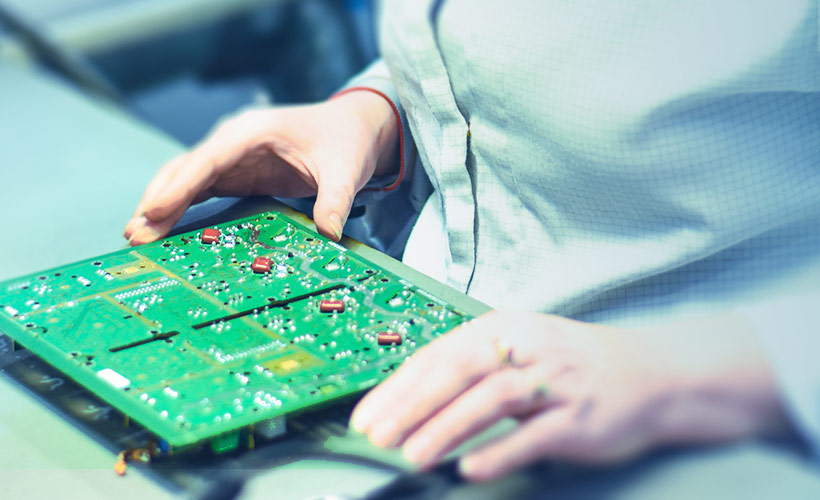In the fast-evolving world of electronics manufacturing, the integration of the Internet of Things (IoT) is revolutionizing how turnkey electronics plants operate. This transformation is not only reshaping production processes but also significantly enhancing efficiency and quality. In this article, we will delve deep into the world of IoT integration in turnkey electronics plants and explore its profound impact on the industry.

The Role of IoT in Modern Manufacturing
The Internet of Things is a network of interconnected devices that communicate and share data with each other. In the context of manufacturing, IoT facilitates the seamless exchange of information between machines, sensors, and systems. This interconnectedness leads to improved monitoring, control, and automation of processes within turnkey electronics plants.
How IoT Enhances Turnkey Electronics Plants
Turnkey electronics plants benefit immensely from IoT integration. By connecting various components of the production line, manufacturers can achieve higher levels of efficiency and precision. Real-time data collection allows for the monitoring of production metrics, enabling quick adjustments to optimize performance. Furthermore, predictive maintenance becomes possible, reducing downtime and extending the lifespan of equipment.
Improving Efficiency and Productivity
With IoT, turnkey electronics plants can streamline operations, resulting in increased productivity. Automated systems can perform tasks with greater speed and accuracy compared to manual processes. This efficiency not only boosts output but also reduces operational costs, making it a win-win scenario for manufacturers.
Quality Assurance Through IoT
Ensuring consistent product quality is a top priority for turnkey electronics plants. IoT integration plays a crucial role in maintaining high standards by enabling real-time monitoring and quality control. Sensors and cameras can detect defects and irregularities during production, allowing immediate corrective actions. This proactive approach minimizes waste and enhances overall product quality.
Data-Driven Decision Making
The wealth of data generated by IoT devices empowers manufacturers to make informed decisions. By analyzing this data, companies can identify trends, predict demand fluctuations, and optimize supply chain management. This data-driven approach enhances strategic planning and ensures that turnkey electronics plants remain agile and responsive to market changes.
Sustainability and IoT
In an era where sustainability is paramount, IoT integration supports eco-friendly practices in turnkey electronics plants. By monitoring energy consumption, manufacturers can identify areas for improvement and implement energy-saving measures. This not only reduces the environmental footprint but also lowers operational costs, aligning with the growing demand for sustainable manufacturing practices.
Challenges and Considerations
While the benefits of IoT integration are substantial, it is essential to acknowledge the challenges associated with its implementation. Security concerns, data privacy, and the need for skilled personnel to manage IoT systems are critical considerations for manufacturers. Addressing these challenges is vital to ensure the successful and secure deployment of IoT in turnkey electronics plants.
Security and Data Privacy
As IoT devices collect and transmit vast amounts of data, ensuring the security and privacy of this information is paramount. Manufacturers must implement robust cybersecurity measures to protect sensitive data from unauthorized access and breaches.
The Future of IoT in Turnkey Electronics Plants
The future of manufacturing lies in the continued evolution of IoT technology. As IoT devices become more advanced and affordable, their integration into turnkey electronics plants will become more widespread. This evolution promises to drive further improvements in efficiency, quality, and sustainability, shaping the future of electronics manufacturing.
Conclusion
In conclusion, IoT integration in turnkey electronics plants is a game-changer for the industry. By harnessing the power of interconnected devices and data-driven insights, manufacturers can achieve unprecedented levels of efficiency, quality, and sustainability. As the industry continues to evolve, embracing IoT technology will be crucial for staying competitive and meeting the demands of a rapidly changing market.

FAQs
1. What is IoT integration in turnkey electronics plants?
IoT integration involves incorporating interconnected devices and systems into turnkey electronics plants to enhance efficiency, quality, and decision-making.
2. How does IoT improve manufacturing efficiency?
IoT improves manufacturing efficiency by enabling real-time monitoring, automation, and predictive maintenance, reducing downtime and operational costs.
3. What are the challenges of IoT integration?
Challenges include security concerns, data privacy, and the need for skilled personnel to manage and maintain IoT systems effectively.


